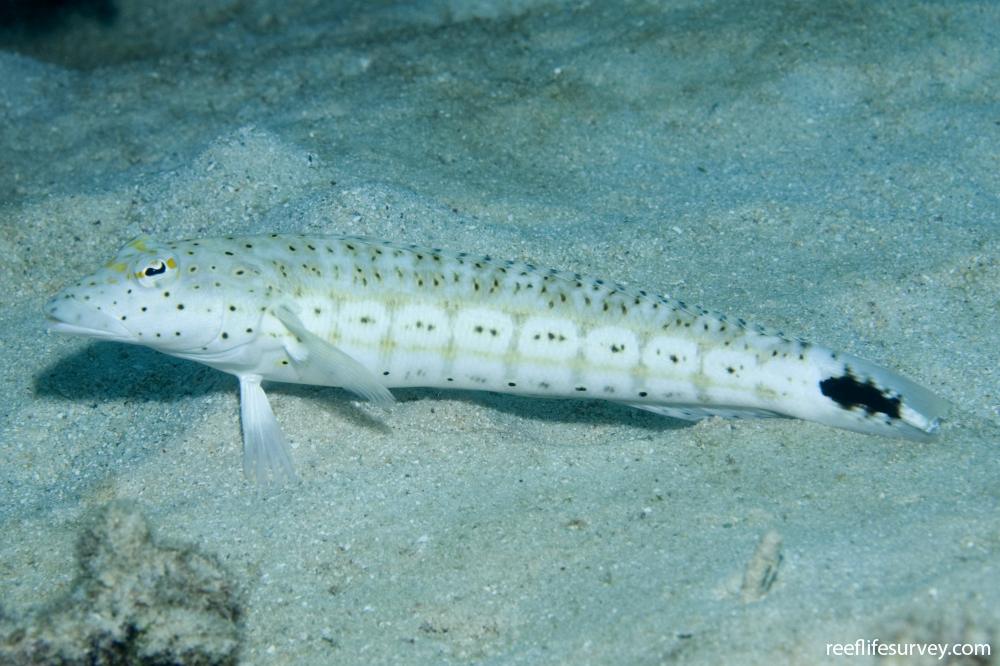Parapercis queenslandica
Blacktail grubfishSimilar Species
Same Genus
Distribution
Tropical Indo-Pacific
Description
White body with small black spots covering back, rectangular outlines on side with central black spots. Large adults with orange spots between eyes, males with short oblique orange lines on lower cheek, females with widely spaced black spots. Recently split from P. hexopthtalma (Speckled Grubfish), of the Indian Ocean, and distinguished from it, P. pacifica (Pacific Grubfish) from South-East Asia and P. xanthogramma (Eastern Blacktail Grubfish) of the central Pacific, primarily by location, but also by colour and length of bars on the cheek of males, and spot pattern on face of females.
Information
Max Size: 29 cm
Sea Temperature Range: N/A
Depth: 1-27m
Habitat Generalization Index: 11.62
Also referred to as the SGI (Species Generalisation Index), this describes the habitat niche breadth of the species. Species with values less than 15 are found in a relatively narrow range of reef habitat types (specialists), while those over 25 may be found on most hard substrates within their range (generalists). Learn more here.
Conservation and Rarity
IUCN Status: Not Evaluated
Occurrence: Common (29.5% of sites)
Occurrence describes how often the species is found on surveys within its distribution. It is calculated as the % of reef sites surveyed by RLS divers across all the ecoregions in which the species has been observed
Abundance: Few (2 per transect)
Abundance is calculated as the average number of individuals recorded per RLS transect, where present.
Edit by: Joe Shields


























